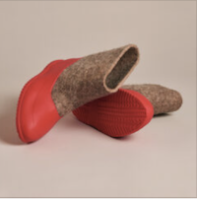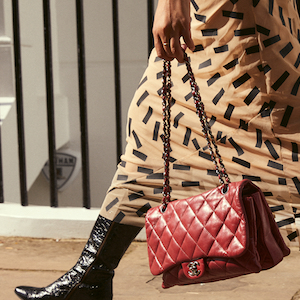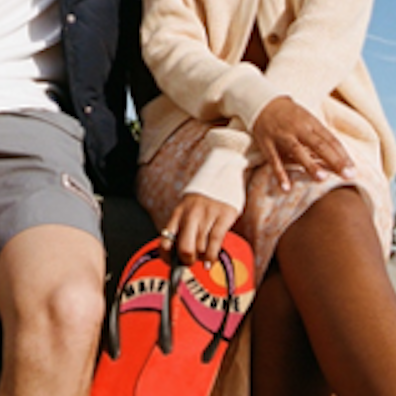Little Green Men
By Ian Michael Turner
Fashion week comes but twice a year, in not only the big four cities of London, New York, Paris and Milan, but in many a city across the world; from Tbilisi Georgia to Sao Paulo Brazil; from Lisbon Portugal to Sydney Australia; a nation which currently burns due to the effects of climate change. This is not to mention, the ever-changing weekly ‘drops’ of fast fashion collections and designer collaboration/streetwear drops, designer resort and cruise collections.. the carousel is never-ending.
Does it feel frivolous then, in a changing world wrought asunder by the effects of climate change, to support an industry that itself plays gargantuan cause to climate change?
The designer Vivienne Westwood may take comfort in her “Buy less. Choose well. Make it last.” mantra, but it is not quite so simple as that. The fashion industry is one of the major polluting industries in the world, from its production and distribution of the crops, fibers, and garments to the making of garments: All contributing to differing forms of environmental pollution, including water, air, and soil pollution. To be frank, the impact of the fashion industry upon the environment and society at large (those involved in the creation of fashion at base level), is staggering.
With all this, etched indelibly in the flames of the Australian bush in our minds, this season at LFWM we decided to examine ethical and sustainable design on show. 2019, has been called London’s ‘Year of sustainability’ (NOWfashion) but in 2020 it appears there is room for a lot more, but we have started.
Designer Bethany Williams however, who in 2019 won the award for Emerging Menswear Talent at the Fashion Awards, has always shaped her entire business around the social and environmental concerns; and drawing attention to them. She has also won the Queen Elizabeth II Award and her clothing (which recognizes young designers making a difference to society) is manufactured using solely sustainable materials, and in partnership with charities that support social change.

This season, Bethany again led the charge: inspired by her work with The Magpie Charity, the collection was based upon motherhood and a nurturing community. She used recycled bedding to craft her unisex garments and techniques such as quilting and patchwork which are common threads through this collection. Knitwear is hand-knitted using Wool and the Gang yarns, coats come made out of recycled toy ribbons and with her ongoing partnership with Adidas, she celebrates the iconic Superstars anniversary, with a selection of upcycled superstars donated through the new Adidas Infinite play Initiative. For many Bethany Williams is the future of how fashion can easily become a greener business.
Also taking up the vanguard of sustainability, was British-Nigerian designer Tokyo James, whose ‘Last Winter’ collection, is a contemplation upon the effect of global warming and the role that the fashion industry has played in it;
With this is in mind James has incorporated fabrics leftover from his previous collections that were never used — as well as up-cycled faux leather from family-owned tanneries. Old towels assimilated into blazers, leather jackets and oversized jumpers with a nod to mid-’90s grunge, unisex everyday staples for a ‘dress up/dress down’ look. Going forward, Tokyo James will only produce made-to-order, limited-edition capsule collections, moving the brand towards reducing waste and keeping each piece in some way unique to each buyer; one step further, to infinity and beyond!
“The question excites a spark of revolt against buying just for aesthetics and mass quick-fix consumption. TJ asks you to think, ‘what would you pick if function, quality and design were the deciding factors in your decision to purchase?’ “

With this is in mind James has incorporated fabrics leftover from his previous collections that were never used — as well as up-cycled faux leather from family-owned tanneries. Old towels assimilated into blazers, leather jackets and oversized jumpers with a nod to mid-’90s grunge, unisex everyday staples for a ‘dress up/dress down’ look. Going one step further to infinity and beyond.
At Studio ALCH, the collection was designed in its entirety, in accordance with strict waste-reducing measures. All pieces were produced from recycled, organic or excess deadstock material, and jersey styles were produced in Tencel; a compostable and biodegradable fibre.

Designer Vinti Andrews presented a menswear collection, complimented by two womenswear pieces, made from upcycled iconic Nineties pieces.

Per Gotesson, continued with his AW20 showing, his longstanding use of upcycled pieces. Denim jackets were mixed with hand-painted leather panels, and long-sleeve jerseys were with articulated cuts, patched together elements of found garments.

At Stefan Cooke, who with his AW20 collection, cemented himself as ‘one to watch’, accessories were vintage sourced, with shearling handles and airbrushed leather pieces created in collaboration with Will Bond.

No feature on sustainable British menswear can be complete, without mention of another leader in the field; the inimitable Patrick Grant! Grant, helms both LFWM fashion label E.Tautz, and ‘Made In Britain’ Community Clothing, which is a ‘fair trade’ style, is restoring jobs and pride to the British textile manufacturing industry. For his AW20 E.Tautz collection, Grant was undoubtedly clear in his commitment to sustainability, it was entitled ‘BRAND NEW SECOND HAND’, accompanied by the apocalyptic (yet necessary) assertion;

“Fashion, a world of consumption and destruction that heaps misery upon human beings and reaps damage on the planet on a scale almost no other industry comes close to matching.”
His, was as a collection, a sophisticated reimagining of the classic look of young Englishman; think Brideshead Revisited in 2020 His signature sharp-lined yet ‘louche’ tailoring. As if things couldn’t get any better, approximately 50% of pieces, were made from repurposed fabrics.
Lastly but important to note is the idea that buying well made good quality clothing, whether it be high fashion, catwalk or classic in itself is a small part of the solution. Pieces that can be kept and worn over decades are important within our ideals of sustainability. But we must not use this as an excuse to not try harder.
2020 men’s shows have been a start towards seeing more designers answering the call towards better working practice but there is still an awful lot more to do, but at least it does seem we are moving in the right direction.
Main Image Bethany Williams





